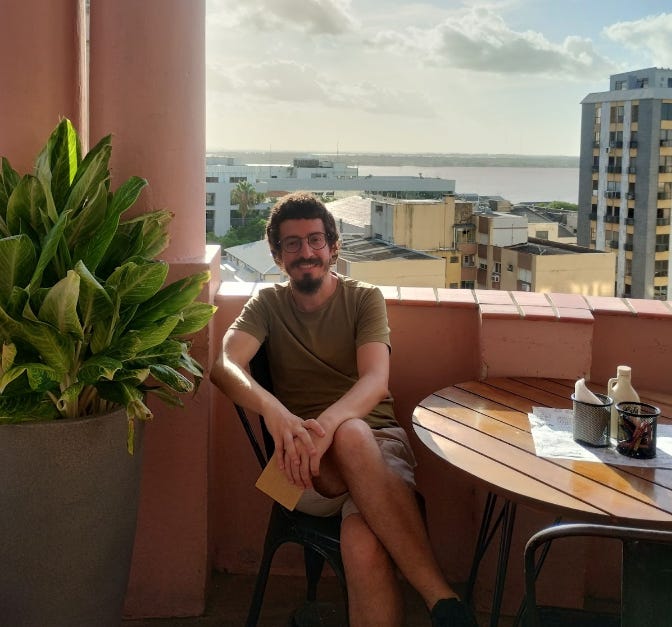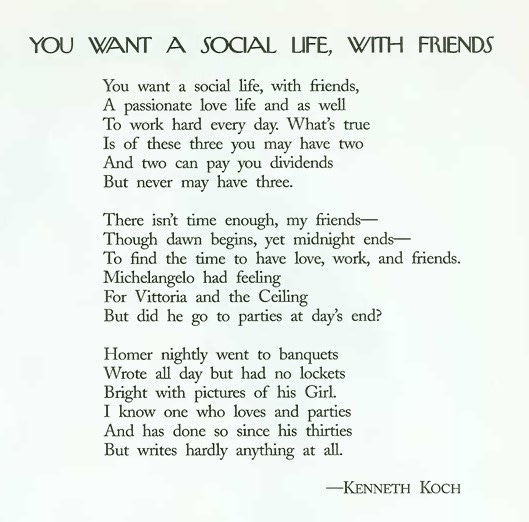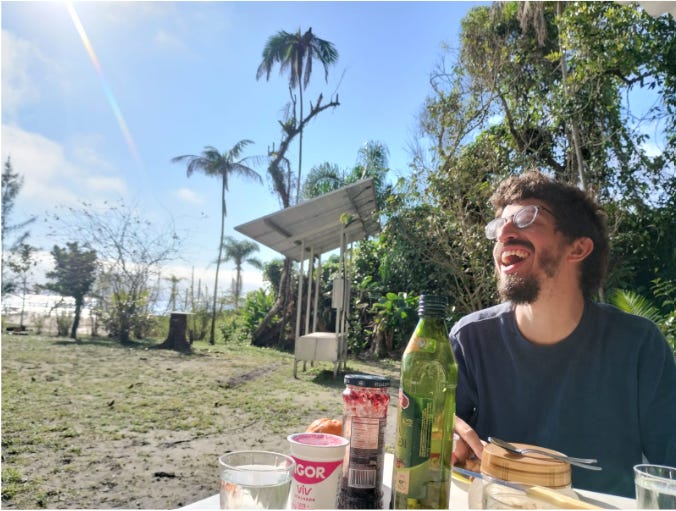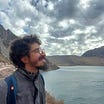Could a Nomadic Lifestyle Sabotage Your Career and Personal Life?
On 'nomadizing' and 'de-nomadizing' life—an unfiltered interview with Mateus Camillo from No Direction Home
“And I really believe what I said above: there are no ex-nomads. Maybe there aren’t even nomads. Just people with different desires and needs at certain times in life.”—
Dear readers,
This week, I have the pleasure of interviewing Mateus Camillo, the writer behind No Direction Home, a Substack newsletter about travel, remote work and nomad life.
Shortly after the pandemic, Mateus began to feel an overwhelming sense of dissatisfaction with his life. After visiting a friend in another city, he realized his job could be done from anywhere, so he embraced the nomadic lifestyle… only to reverse that decision a year and a half later. What happened? You might wonder.
Read on for a candid discussion about the price of living nomadically and what drives people to embrace it—or quit it.
Hi Mateus, I’m so happy to have you today!
In the description of your newsletter, you define yourself as “The author has lived from Airbnb to Airbnb since January 2023.” First of all, let me tell you how good it feels to connect with someone who understands the frustration of dealing with unsharpened knives and the occasional lack of light-blocking curtains all year long! Jokes aside, could you share what prompted you to leave a more stable life in favor of a digital nomad lifestyle?
The desire to travel a lot has been within me since I was young. And I’ve always travelled as much as my money allowed, whether close or far.
The pandemic left me with an overwhelming sense of dissatisfaction with life.
Staying home for months was terrible. Suddenly, I felt frustrated with my job, my routine, and my seven-year relationship. When the pandemic eased a bit, I started visiting a friend of mine in Rio de Janeiro, working remotely. And there, enchanted by the landscape that only Rio de Janeiro offers, I realized that a new life was possible:
“Wow, my work can be done from anywhere!”
It was crazy because I had already been working from home for months.
But only there, in Rio, did I have that eureka moment that I could be in another city. And that’s when I felt an urgent need to travel, to move, to live new lives, to meet new people. A search for something I didn’t quite know what it was, but that dominated me and told me to abandon my old life. I didn't want to get old feeling frustrated.
In 60 days, I quit my job, ended my relationship, and started living from Airbnb to Airbnb.
Wow! That was quite of a change! But I can totally relate with the feeling of dissatisfaction you described. Building on that, in an incredibly interesting newsletter issue titled ‘How to try (and probably fail) to conciliate career, family, and community in the nomadic life’, you openly discuss the difficulty of juggling all these spheres, or the even more challenging task of choosing two out of three.
It strongly reminded me of the poem “You Want a Social Life, with Friends,” which I first read on Austin Kleon’s blog years ago:
Have you made any progress regarding this? In other words, do you still feel pulled in different directions and partly dissatisfied with the outcomes in all these areas?
Such an interesting question that I might end up going on for too long in my response!
My life has changed a lot in recent months since I fell in love with my current girlfriend (you can read more here).
We are all susceptible to this in the nomadic life. It could be a passion that lasts days, weeks, months, or has no expiration date. And many scenarios can emerge from this, from people getting married and having kids to both travelling together as nomads. In my case, she’s a teacher, gives in-person classes, and can only spend a few days with me on a trip. We did this in Santiago, Chile, and Florianópolis, Brazil, and in July we spent 15 days together on the beach and in caves during our vacation. But our life has mostly been in São Paulo.
I’m in a process of “de-nomadization,” undoubtedly accelerated by the relationship, but not only by that. I was feeling an increasing need to stabilize as much as possible my career, family, and community.
Traveling aimlessly is incredible, but it’s also very lonely. Leaving a city when you’re just starting to feel like you belong there is really painful. Traveling aimlessly can also undermine your networking, especially when you don’t make your earnings from social media content or have your own fully remote business. I’m a journalist; I need to schedule a coffee, drink a beer and get to know people. And I do that in São Paulo, the city where I lived for the last 14 years before my nomadic life, and where all my professional contacts live. This also influenced my decision to “de-nomadize” at this point.
Nomad or not, we can’t fully handle these three areas.
And I increasingly think “nomadism” is also an imprecise concept.
Just as when I was an authentic nomad, traveling alone, I didn’t feel like a “nomad” but like a normal person, with bills to pay, needing to work and have a social life (but doing it in various cities), now I also don’t feel like an “ex-nomad,” but rather like someone who returned to live in São Paulo by circumstance, but who will always have an intrinsic desire to be in other cities, in other Airbnbs, even if for shorter periods and less frequently.
It makes absolutely sense! And many of the aspects you’ve described are things I find myself pondering daily as well.
Moving forward, in ‘Who pays the bill for nomadism?’, you invited journalist and nomad Júlia Flores, to write for No Direction Home on how to start and sustain a digital nomad lifestyle, including the widespread misconception that you need to be as wealthy as an 'heir' to become one.
In the article, you mention:
“As Júlia Flores says, there's a privilege in being middle class. But having had a certain privilege doesn't automatically qualify anyone to become a nomad. Blessed are those who can be nomads with more comfort. Me, Júlia, and many others need courage.”
Could you elaborate on what you think are the biggest misconceptions about the lifestyle of those who work and travel simultaneously and what, in your view, anyone interested in potentially getting started should ensure before hitting the road?
That’s the best question you could ask!
There are a thousand misconceptions about nomadism that need to be reexamined. The first of all: I vehemently reject Instagram nomads.
The need that social media imposes on content creators for life to look perfect makes all content about nomadism highly romanticized. It seems so easy to dine at amazing restaurants, have a flexible routine, and work with your feet in the sand on a paradise beach. These nomads are the exception. Most people won’t have the financial means or work setup to live like that. And this creates a stigma, as if all nomads have economic privilege or inheritances. For me, earning in Brazilian currency, I have access to only a few countries, mostly in South America. I’ve been to Budapest and Rome, but during those months my balance was negative. I stayed there as a luxury, a gift I gave myself. But it wasn’t sustainable in the medium term. At the same time, I’m very proud that my nomadic experience only existed thanks to what I was able to accumulate over 10 years in journalism.
In this romanticization, nobody talks about how difficult it is to maintain the nomadic lifestyle.
It’s easy to brag about travelling around, living in a state of freedom. It sounds like a dream life. But it brings many psychological burdens that might take time for us to process. It’s a dichotomous life: complete euphoria over the new life in a new city, the possibility of having multiple local lives, and overwhelming sadness over the uncertainty, the instability, the feeling of “what am I doing with my life.”
A future nomad, therefore, needs to know that these will be the best worst days of their life.
They need to understand that life will still be full of crap happening, that the cool restaurants and smiling Reels are a very specific and inaccurate snapshot of this nomad lifestyle. And please, try to connect as much as possible with local people, not with tourists or other nomads or travellers. It’s a unique chance to immerse yourself in the life of that country or city.
We are almost at the end of our interview, Mateus—it’s been so much fun and I loved your insights! Before we wrap up, is there anything else you’d like to add?
I must admit I felt a bit apprehensive when I agreed to do this interview, wondering if I was being unfair to other nomads, after all, I’m in the process of "de-nomadizing," and this is a newsletter or interview about the nomadic life.
However, I believe that even if history records that I was a true nomad for only a year and a half, it’s still a year and a half of experience that will be etched into my life forever. I’ll be 80 years old and still telling my grandchildren about those 18 months Grandpa spent travelling.
And I really believe what I said above: there are no ex-nomads. Maybe there aren’t even nomads. Just people with different desires and needs at certain times in life. I always keep in mind what a friend of mine, also an ex-nomad, once told me: "We have to enjoy things while they last and then be happy when they change. Having travelled for a few years and then stopping isn’t necessarily bad, as long as you’re aware during those years that you were happy."
I was happy.
What you just read was an interview with
from . I hope you enjoyed it! I’m curious to know:Did anything surprise you from what you read?
Do you have doubts or questions you’d like to ask Mateus? If so, feel free to write them below!
Before you go! ✋Help to elevate Freedom Focus by answering this poll!
That’s all from me this week 💙
I’ll see you next time!
Yours,
Caterina













I undoubtedly recognize that this was the interview I most enjoyed answering in my life. Great questions and reflections. Thank you for inviting me, Caterina. I wish all the best for Freedom Focus!
That was a great interview!! Thanks for offering your perspective, Mateus! :)